Erased or Ignored? The Forgotten Female Heroes of African History”
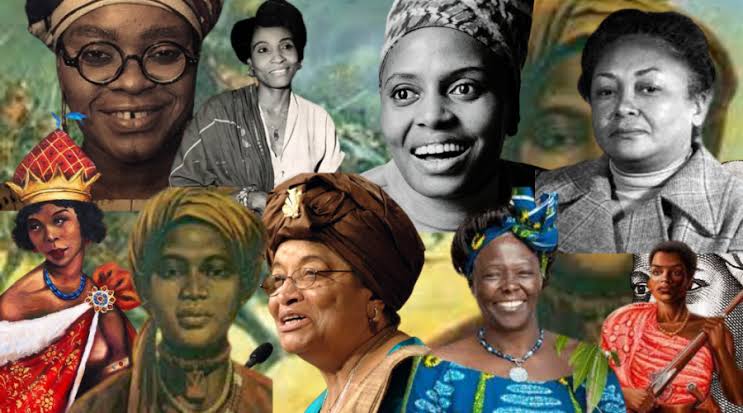
INTRODUCTION: HER-STORY IN THE SHADOWS
Across Africa, the narratives of women who led revolutions, shaped resistance movements, and ruled with brilliance have been marginalized, buried beneath patriarchy, colonial frameworks, and male-centered storytelling. In many national histories, women are footnotes, if mentioned at all.
This silence is not accidental. It is historical amnesia.
African women were at the forefront of freedom. They led armies, negotiated treaties, and founded movements. Yet most African students finish school without studying a female freedom fighter—let alone seeing one as a role model.
WHY WOMEN WERE WRITTEN OUT OF HISTORY
History is not only what happened, but what is remembered. For African women, much of what they did was neither recorded nor celebrated.
This systematic erasure of African women from history is not accidental, it’s the outcome of colonial record-keeping, traditional patriarchy, and male-dominated academic institutions, all of which worked in tandem to downplay, distort, or delete the roles women played in shaping the continent.
Colonial Erasure
European colonizers documented African societies through gender-biased lenses. Women's contributions were often dismissed as emotional or secondary, while men were portrayed as rational and central.
Patriarchal Traditions
Even traditional African oral histories often favored male lineages. Male storytellers preserved patriarchal structures that sidelined women.
Academic Gatekeeping
For decades, African history was written by men—Western and African—who perpetuated myths that women were merely supporters. This “historical erasure” was not oversight. It was deliberate, reducing women’s roles to fit a male-dominated narrative.
History
Rewind the Stories that Made Africa, Africa
A Journey Through Time, Narrated with Insight.
Without historical role models, many African girls grow up without seeing themselves as potential leaders. But these forgotten stories are resurfacing.
YAA ASANTEWAA: The Queen Who Fought The British
In 1900, the Ashanti Kingdom in present-day Ghana faced colonial aggression. British forces demanded the Golden Stool, a sacred symbol of Ashanti sovereignty. As male chiefs hesitated, Queen Mother Yaa Asantewaa rose.
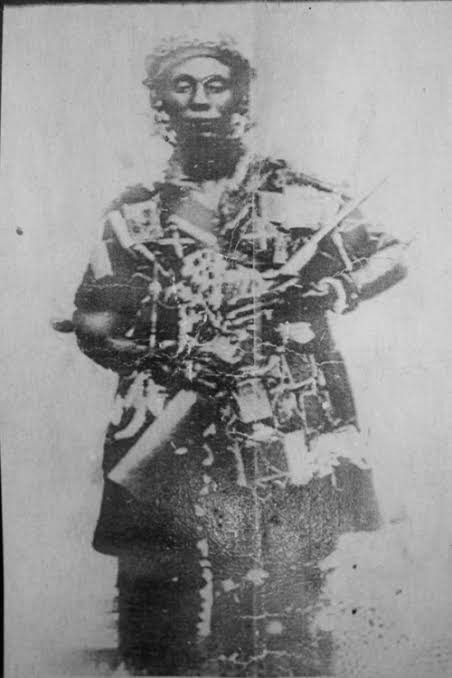
Photo Credit: Google Image
She led the War of the Golden Stool, commanding an army of 5,000 against British troops. Though the rebellion was suppressed, her leadership shook colonial confidence.
Yaa Asantewaa shattered gender norms,leading not just as a queen but as a military strategist. Yet, her legacy remains largely confined to oral history and monuments. Her absence in formal curricula signals deeper fears: she was a woman who led boldly, without waiting for male approval.
FUNMILAYO RANSOME-KUTI: Voice Of Nigerian Women
In 1940s Nigeria, Funmilayo Ransome-Kuti defied both British rule and patriarchal systems. A teacher, suffragette, and activist, she organized thousands of market women under the Abeokuta Women’s Union (AWU) to resist unfair taxation.
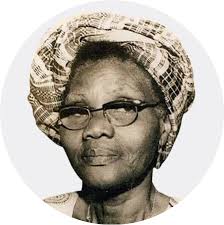
Photo Credit: SITEL
Their protests forced the Alake of Abeokuta to abdicate and disrupted colonial systems that saw women as politically irrelevant. Ransome-Kuti later co-founded the Nigerian Women’s Union and helped build the country’s first political party.
Despite her impact, she’s often reduced to “Fela’s mother.” Yet, as historian Cheryl Johnson-Odim notes, “Funmilayo Ransome-Kuti was to Nigerian women what Kwame Nkrumah was to Ghanaian independence.”
She wasn’t just a driver—she drove revolutions.
History
Rewind the Stories that Made Africa, Africa
A Journey Through Time, Narrated with Insight.
QUEEN AMINA OF ZAZZAU: Builder And Warrior
In the 16th century, Queen Amina of Zazzau (modern-day Zaria, Nigeria) ruled with strength and strategy. Trained in politics and warfare, she led successful military campaigns that expanded Zazzau’s territory.
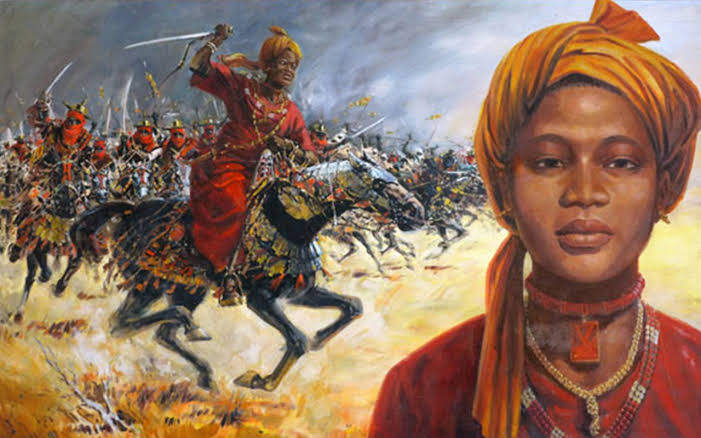
Photo Credit: LeVogue Magazine
Amina commissioned fortified walls—many still visible today—and governed as a sovereign, not a figurehead. Despite minimal written records, oral histories and chronicles like the Kano Chronicle speak of her as a tactical genius.
Though some debate her historicity, her legend reflects real power and aspirations. Today, schools and statues bear her name—but not always her story. Her tale remains a weapon against gendered erasure.
NEHANDA NYAKASIKANA: Zimbabwe’s Spiritual Resistance
In 1896, during Zimbabwe’s First Chimurenga (uprising), spiritual leader Nehanda Charwe Nyakasikana—known as Mbuya Nehanda—mobilized resistance against British rule. As a medium of the revered spirit Nehanda, she inspired unity and defiance.

Photo Credit: Wikipedia
Though she didn’t wield weapons, her influence was profound. Arrested and executed in 1897, her last words—“My bones will rise again”—became a prophetic symbol of Zimbabwean independence decades later.
Mbuya Nehanda is remembered in monuments and speeches, yet often politicized rather than taught. Her legacy proves that leadership isn’t always on the battlefield—it can emerge from cultural and spiritual conviction.
RUTH FIRST: Writing Through Repression
History
Rewind the Stories that Made Africa, Africa
A Journey Through Time, Narrated with Insight.
In apartheid South Africa, Ruth First, journalist, researcher, and anti-apartheid activist—chose truth over safety. She exposed systemic abuse in The Guardian and co-founded Fighting Talk to amplify silenced voices.
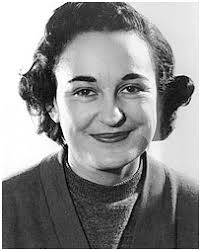
Photo Credit: Google Image
She was the first white woman detained under the 90-day detention law. Later exiled, she continued her activism in Mozambique until her assassination by parcel bomb in 1982.
Often overshadowed by her husband Joe Slovo, Ruth First's legacy is one of fearless journalism and resistance. Her life reminds us of the power of truth—and the risks women take to tell it.
Other Forgotten Heroines
Beyond the better-known names of Africa’s women revolutionaries lies a constellation of forgotten fighters, thinkers, and healers many of whom have been overshadowed by history, despite the critical roles they played in shaping the continent’s destiny.
These women fought not only against colonialism or injustice but often against invisibility itself, operating in spaces where recognition was rare and remembrance even rarer.
Here are just a few of Africa’s unsung heroines:
Nzinga Mbande (Angola): A 17th-century queen of Ndongo and Matamba, Nzinga resisted Portuguese colonial rule with diplomacy, warfare, and sheer political intelligence. She defied gender roles, commanded armies, and left behind a legacy of sovereign resistance.
Charlotte Maxeke (South Africa): The first Black South African woman to earn a university degree, she co-founded the Bantu Women’s League and fought for gender and racial justice at a time when both were denied her.
Wangari Maathai (Kenya): Nobel laureate and founder of the Green Belt Movement, she fused environmentalism with feminist resistance, planting trees and defying dictatorship.
Nehanda Charwe Nyakasikana (Zimbabwe): also known as Mbuya Nehanda, she was a spirit medium and nationalist leader of the 1896–1897 Shona resistance against British colonizers.
These women fought battles beyond war—preserving identity, shaping culture, and leading change where it was least expected.
History
Rewind the Stories that Made Africa, Africa
A Journey Through Time, Narrated with Insight.
Why Their Absence Still Matters
The erasure of African women’s contributions from our collective narrative distorts our understanding of leadership, resilience, and resistance. It sends a quiet, dangerous message: that only men built nations, only men led wars, only men mattered.
1. Impact on Girls' Self-Image
Without visible role models in history, girls may believe that leadership and change are not their inheritance but exceptions. Representation in the past validates ambition in the present.
2. Policy and Leadership Gaps
When female heroes are absent from history, gender equity seems like a new idea, not a foundational truth. This impacts political inclusion and perpetuates tokenism.
3. National Pride and Identity
What a nation remembers, it celebrates. Omitting women from collective memory shrinks our sense of shared pride and makes historical power seem exclusively male.
If we exclude women’s history from monuments, school curricula, and national holidays, we rob ourselves of a fuller, richer, more accurate story of African resilience.
“If you erase the past of a people, you limit their future.”
RECLAIMING HER-STORY: A Call To Action
If history has been written with one eye closed, then it’s up to this generation to open both and rewrite the record. Recovering the voices of Africa’s forgotten female heroes isn’t just about paying tribute to the past; it’s about reshaping the future.
1. Reform Education
Update textbooks, train teachers, and integrate women’s stories into civic and history curricula. Teach Queen Amina, Funmilayo Ransome-Kuti, Nzinga Mbande, not as add-ons, but as central figures.
History
Rewind the Stories that Made Africa, Africa
A Journey Through Time, Narrated with Insight.
2. Empower Storytellers
Support historians, writers, and journalists unearthing these stories. Fund gender-focused research, amplify feminist publishers, and translate histories into local languages.
3. Use Media to Educate
Leverage podcasts, films, and social media. Support museums like the Yaa Asantewaa Museum, streaming projects like African Queens, and podcasts like Herstory Africa.
Push for public spaces, statues, festivals, street names, that honor these heroines.
History is not inherited. It is remembered—or forgotten. And forgetting African women has cost us too much.
We must now reclaim their memory, so that the next generation grows up knowing that courage wears every face.
CONCLUSION: Names Worth Remembering
Africa’s story has never been short of greatness, it’s simply been selective in who it credits. For centuries, the spotlight has lingered on male warriors, presidents, and revolutionaries, while the women who strategized, resisted, healed, and led were tucked into the margins.
But the truth is clear:
Africa didn’t lack female heroes, it ignored them.
From Yaa Asantewaa raising an army in Ghana, to Ruth First risking her life for justice in apartheid South Africa, to Wangari Maathai planting trees in defiance of dictatorship, these women didn’t just support movements—they led them.
Their stories are not “women’s stories.”
They are African stories.
History
Rewind the Stories that Made Africa, Africa
A Journey Through Time, Narrated with Insight.
Our stories.
“To truly understand Africa’s strength, we must remember the women who bled for its freedom, led with wisdom, and fought to be more than footnotes in its story.”
The time for forgetting has passed.
The time for **remembering—and rewriting—**is now.
Recommended Articles
You may also like...
Be Honest: Are You Actually Funny or Just Loud? Find Your Humour Type

Are you actually funny or just loud? Discover your humour type—from sarcastic to accidental comedian—and learn how your ...
Ndidi's Besiktas Revelation: Why He Chose Turkey Over Man Utd Dreams

Super Eagles midfielder Wilfred Ndidi explained his decision to join Besiktas, citing the club's appealing project, stro...
Tom Hardy Returns! Venom Roars Back to the Big Screen in New Movie!

Two years after its last cinematic outing, Venom is set to return in an animated feature film from Sony Pictures Animati...
Marvel Shakes Up Spider-Verse with Nicolas Cage's Groundbreaking New Series!

Nicolas Cage is set to star as Ben Reilly in the upcoming live-action 'Spider-Noir' series on Prime Video, moving beyond...
Bad Bunny's 'DtMF' Dominates Hot 100 with Chart-Topping Power!

A recent 'Ask Billboard' mailbag delves into Hot 100 chart specifics, featuring Bad Bunny's "DtMF" and Ella Langley's "C...
Shakira Stuns Mexico City with Massive Free Concert Announcement!

Shakira is set to conclude her historic Mexican tour trek with a free concert at Mexico City's iconic Zócalo on March 1,...
Glen Powell Reveals His Unexpected Favorite Christopher Nolan Film

A24's dark comedy "How to Make a Killing" is hitting theaters, starring Glen Powell, Topher Grace, and Jessica Henwick. ...
Wizkid & Pharrell Set New Male Style Standard in Leather and Satin Showdown

Wizkid and Pharrell Williams have sparked widespread speculation with a new, cryptic Instagram post. While the possibili...

